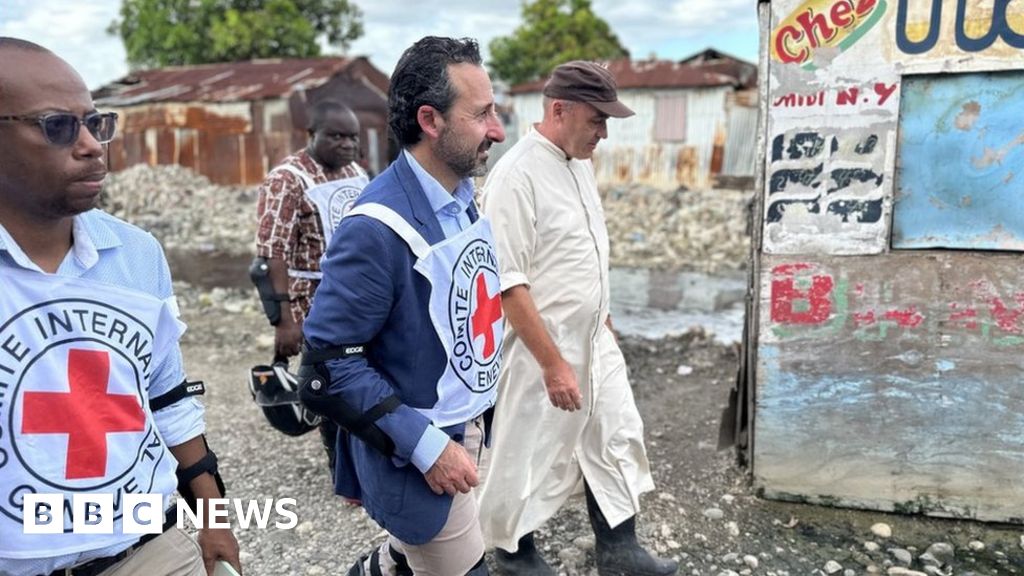This is the best summary I could come up with:
“In my 27 years serving the ICRC, I have rarely seen such a toxic and terrible combination of adverse factors hitting communities living in shanty towns,” he said, describing streets flooded with sewage-contaminated water in the impoverished neighbourhood of Cité Soleil.
With much of the capital fought over by rival gangs, locals are often confined to their neighbourhood and cannot cross the “fault lines” dividing their area from that controlled by another group.
One man described to Mr Mardini how, in order to get his heavily pregnant wife to hospital to give birth, he had had to first push her in a wheelbarrow through the flooded streets to where he could transfer her onto a motorbike, before finally being able to lift her into a car for the last stretch of the journey.
In order to gain access to areas where there is no state control and armed groups roam freely, the ICRC engages in “continuous dialogue” with the gangs.
The number of groups is overwhelming and I can’t pretend we have a dialogue with all of them," Mr Mardini explained, adding that the ICRC’s ability to help Haitians depended on being known and accepted by the people on the ground.
“If we interrupt it for seven or 10 days, we can’t take it for granted that we can resume from where we left off, because very often there is a loose chain of command within the groups and there’s infighting,” Mr Mardini said of the constant changes within the gangs themselves.
The original article contains 544 words, the summary contains 252 words. Saved 54%. I’m a bot and I’m open source!
Speaking to 300 different organisations to get anything done? Sounds familiar…
Lmao gangs of Haiti swiftly turned into the most bloated bureaucracy known to man



